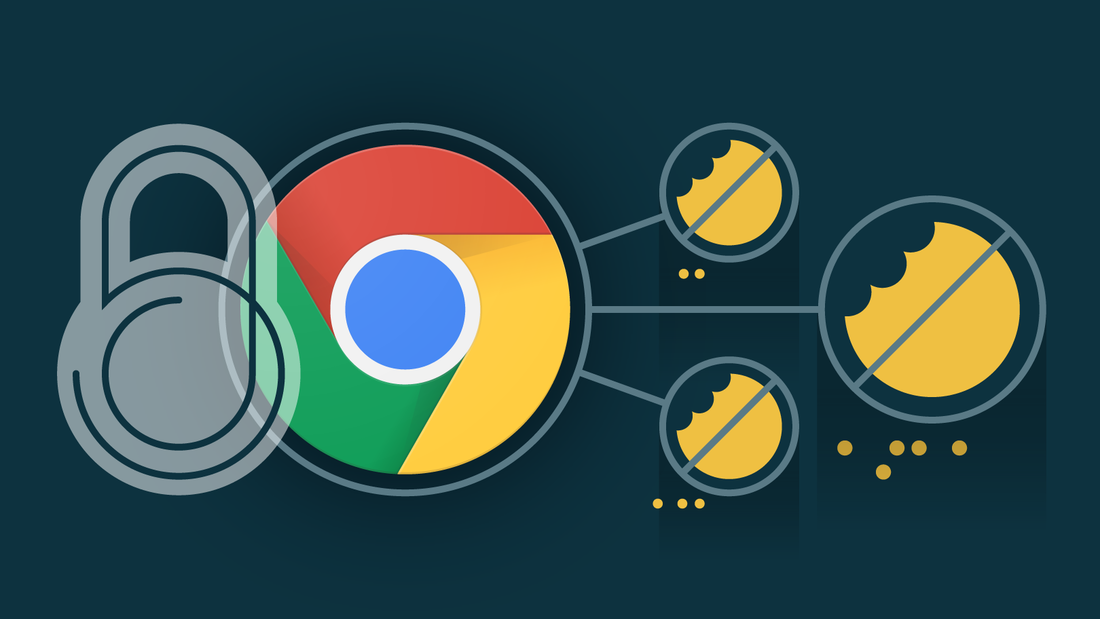|
The Privacy Sandbox: A New Era for Marketing with Chrome 115
In July 2023, Google is set to launch Chrome 115, a significant update that will introduce the long-awaited Privacy Sandbox. This update marks a pivotal moment in the evolution of online marketing, as Google takes strides to address privacy concerns by replacing traditional tracking cookies with a revolutionary technology called Federated Learning of Cohorts (FLoC). Originally announced in 2019, Google has now clarified that the implementation of FLoC will commence in January 2023, setting the stage for a transformative shift in how businesses engage with their target audience. In this article, we will explore the implications of these developments and discuss what the future holds for marketing in the era of the Privacy Sandbox.
Traditional tracking cookies have long been the backbone of online advertising, enabling businesses to gather user data and deliver targeted ads. However, concerns about privacy and data security have led to growing discontent among users, prompting regulatory bodies to enforce stricter measures for data protection. The limitations and vulnerabilities associated with tracking cookies have necessitated a new approach to user privacy. 1.2 Introducing the Privacy Sandbox: To address these concerns, Google introduced the Privacy Sandbox initiative, a collaborative effort aimed at developing privacy-preserving technologies that balance the needs of advertisers and users. At the heart of this initiative lies FLoC, an innovative method that groups users into cohorts based on their browsing behavior, ensuring anonymity while still enabling personalized advertising.
FLoC utilizes machine learning algorithms to analyze users' browsing behavior locally on their devices, rather than relying on individual data collection. It then assigns each user to a specific cohort based on shared interests and preferences. These cohorts are designed to be privacy-preserving, ensuring that individual users' identities remain protected while still allowing advertisers to target relevant audience segments. 2.2 Benefits of FLoC:
With the adoption of the Privacy Sandbox, marketers will need to adapt their advertising strategies to the changing landscape. Instead of relying solely on individual user data, they will need to shift towards cohort-based targeting. This transition will require a more holistic understanding of audience segments and creative approaches to personalized messaging. 3.2 Collaboration and Compliance: As the advertising ecosystem undergoes a fundamental shift, collaboration between marketers, advertisers, and technology platforms will be essential. Adapting to the new privacy standards will require compliance with regulations and the development of new tools and methodologies for effective targeting and measurement. 3.3 Embracing First-Party Data: With the diminishing reliance on third-party cookies, businesses will need to focus on collecting and leveraging their own first-party data. Building direct relationships with customers, implementing consent management platforms, and offering value in exchange for data will become paramount.
The Privacy Sandbox presents an opportunity for marketers to explore new advertising models that prioritize user privacy while delivering effective results. Contextual advertising, collaborative targeting methods, and advanced technologies like machine learning will play pivotal roles in shaping the future of advertising in this privacy-centric era. 4.2 Measurement and Attribution Challenges: As the traditional methods of tracking and measurement become obsolete, marketers will face new challenges in measuring the effectiveness of their campaigns and attributing conversions. The shift towards cohort-based targeting may require innovative approaches to tracking user engagement and understanding the impact of advertising efforts. 4.3 The Evolution of AdTech: The implementation of the Privacy Sandbox will undoubtedly drive advancements in AdTech solutions. Advertisers and technology providers will need to develop new tools and platforms that align with the privacy-focused framework while still delivering actionable insights and optimization capabilities. This evolution in AdTech will pave the way for more sophisticated and privacy-conscious advertising practices.
In the era of the Privacy Sandbox, transparency and user education will be paramount. Marketers must prioritize clear and concise communication about data collection, consent, and the benefits of personalized advertising. Educating users about the value exchange between data sharing and relevant ad experiences will foster trust and enable more informed decisions. 5.2 Embracing Privacy-Centric Strategies: To thrive in the new marketing landscape, businesses must embrace privacy-centric strategies. This involves adopting privacy-by-design principles, implementing strong data protection measures, and respecting user preferences. By prioritizing privacy, businesses can differentiate themselves and build stronger relationships with their target audience. 5.3 Diversification of Marketing Channels: As the impact of the Privacy Sandbox unfolds, marketers should consider diversifying their advertising channels. While digital advertising remains essential, exploring alternative avenues such as influencer marketing, content marketing, and offline strategies can help mitigate the potential limitations and dependencies on cohort-based targeting. Conclusion: With the impending launch of Chrome 115 and the introduction of the Privacy Sandbox, the marketing industry is entering a new era defined by privacy, consent, and cohort-based targeting. The transition from traditional tracking cookies to FLoC technology marks a significant shift in the way businesses engage with their audiences. As marketers navigate these changes, they must embrace transparency, adapt their advertising strategies, and invest in privacy-centric practices. By embracing the opportunities presented by the Privacy Sandbox and aligning with user expectations, businesses can continue to deliver personalized experiences while respecting privacy and building trust in the digital landscape. #GooglePrivacySandbox #digitalamarketing #automotivemarketing Written with assistance from #ChatGPT Ref: https://www.howtogeek.com/893507/google-chrome-will-start-blocking-tracking-cookies-in-2024/
0 Comments
Leave a Reply. |
 Mike theCarGuy
Hey there, I'm Mike theCarGuy and here are some of my thoughts about cars, the car business and sales! Take a look around, maybe you will learn something or at the very least find your self smiling, and if you do... leave me a comment so I know I at least did something right! Thanks for stoppin by...
Need to reach me? Call or Text: (909) 206-4377 [email protected] Mike theCarGuy: 22400 Barton Rd Suite 21-451 Grand Terrace, CA 92313 Twitter: @MiketheCarGuy1 Instagram: MiketheCarGuy Follow Mike Correra on Quora
the Car Guys reads:
Jalopnik LeftLaneNews AutoBlog Bloomberg (yes, Bloomberg!) Japanese Nostalgic Car is friends with: Kruse Kontrol Danny Whitfield Used Car Ricky.com K&N Alley Cat SoCal (apparel and Design) Information provided by CrunchBase Archives
June 2024
|





 RSS Feed
RSS Feed

